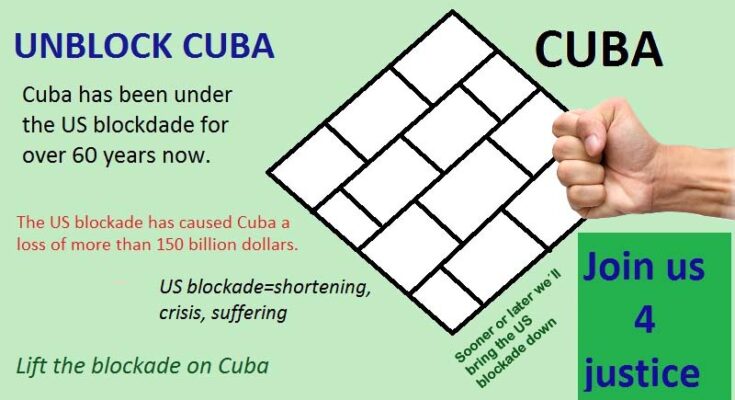Sixty-one years have passed since the United States officially imposed an economic and financial blockade on Cuba, which has made the Cuban people undergo any kind of shortages affecting the economic development of the island and health.
In July 1960, three months after Mallory’s memorandum, President Dwight D. Eisenhower used the Export Control Act of 1949 to cut Cuban sugar exports to the United States, purportedly in response to the nationalizations of sugar on the island. Cuba responded with further nationalizations of US businesses, whose owners were instructed by the US government to reject Cuban offers of compensation.
This maneuver was intended to dramatically hinder the Cuban economy, given the island’s dependence on sugar exports to the United States. The former Soviet Union stepped in to purchase the sugar dropped by the United States. The successive tit-for-tat retaliations between the Cuban and US governments culminated in the United States breaking off diplomatic relations on January 3, 1961.
While the pretext for US actions against Cuba has changed over six decades, the objectives have not. The blockade is a key instrument in the US toolkit to pursue regime change on the island. It is an act of war, a violation of human rights designed to obstruct Cuban development, to undermine its example as a revolutionary alternative, and to intentionally cause suffering among the Cuban people.
US blockade targets
The United States currently has sanctions programs targeting over twenty countries. In 2019, 88 percent of international transactions involved US dollars, giving the United States extraordinary power over global trade.
Cuban Foreign Minister Bruno Rodriguez said before the vote that since 2019, the U.S. government “has escalated the siege around our country, taking it to an even crueler and more humane dimension, with the purpose of deliberately inflicting the biggest possible damage on Cuban families.”
During the first 14 months of the Biden administration, the damage to the Cuban economy was estimated at $6.35 billion, equivalent to more than $15 million a day, Rodriguez said.
In November 2023, the vote in the 193-member General Assembly was 185 countries supporting the condemnation of the US blockade, the United States and Israel opposing it, and Brazil and Ukraine abstaining.
There is no way this inhumane blockade and all the sanctions it entails last forever; the persistent fight of the Cuban people and the international supporting solidarity will do away with it, sooner or later.




